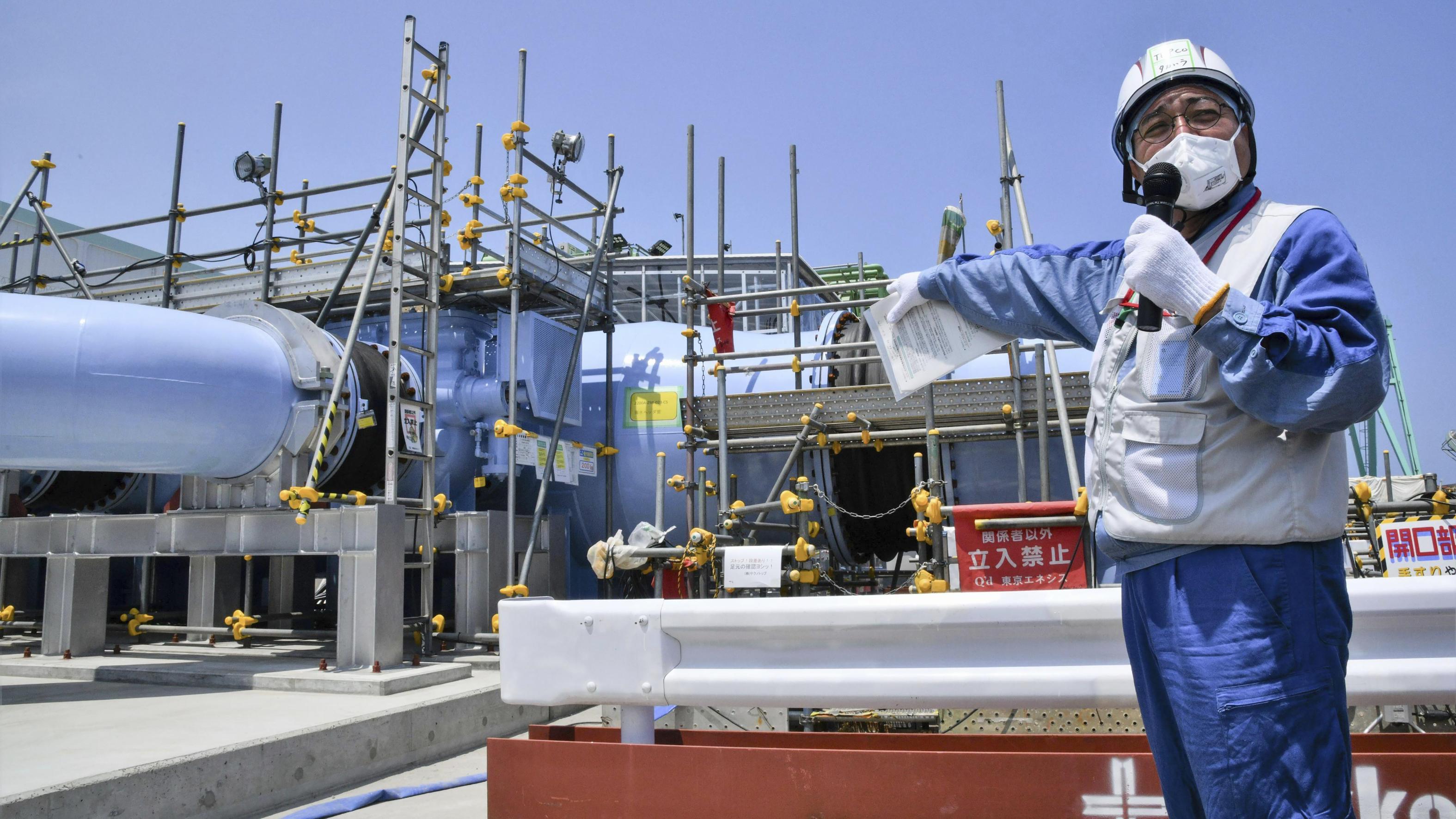UN agency gave ‘favorable treatment’ to Japan over nuclear wastewater plan, Pakistani scientist says
 An employee of Tokyo Electric Power Company explains to the media about the facility to be used to release treated radioactive water at Fukushima Daiichi nuclear power plant in Fukushima, northern Japan, on June 26, 2023. (PHOTO / KYODO NEWS VIA AP)
An employee of Tokyo Electric Power Company explains to the media about the facility to be used to release treated radioactive water at Fukushima Daiichi nuclear power plant in Fukushima, northern Japan, on June 26, 2023. (PHOTO / KYODO NEWS VIA AP)
ISLAMABAD — The International Atomic Energy Agency’s report on Japan’s planned discharge of nuclear-contaminated water into the Pacific Ocean was wrong, a Pakistani nuclear scientist said.
“I think it’s a very favorable treatment to Japan by the IAEA,” Zafar Koreshi, dean of graduate studies at Air University Pakistan, said in an interview with Xinhua News Agency.
The IAEA released a report on July 4 saying the controversial plans to release over one million tons of wastewater into the ocean over the next three decades after treating it with an advanced liquid processing system were consistent with international safety standards and would have “negligible radiological impact on people and the environment”.
The report “ignored the interests of the local people who are affected by this and of the regional countries who are going to be affected by this”, Koreshi said.
So it is legitimate for China, South Korea and other regional countries to demand a joint mechanism to have their concerns addressed, he said.
The 2011 Fukushima disaster, like the one in Chernobyl in 1986, was a level-7 nuclear accident, the highest on the International Nuclear and Radiological Event Scale.
Japan’s plan to dump nuclear-contaminated water into the sea is extremely dangerous and harmful to fish, because it contains cesium, strontium, iodine and tritium, carbon-14 and cobalt 60, with some of them being radioactive, Koreshi said.
“It goes deep into the human DNA and affects medical structure inside our body, and is transmitted through generations,” he said.
The biggest loser from Japan’s nuclear-contaminated water discharge will be Japanese fisherfolk, Japanese people and the entire country itself, Koreshi said.
The Pacific is a big ocean, in which the dumping of nuclear-contaminated water would potentially affect all the regional countries heavily dependent on the fish and plants that grow beneath the water, he said.
Koreshi urged Japan to immediately cease its dumping plan and work with its neighbors to conduct scientific research and simulations to study the potential effects on marine life.
On July 11, during a visit to the Cook Islands, where he briefed the Pacific Islands Forum (PIF) on his agency’s findings, IAEA Director General Rafael Mariano Grossi was asked at a press conference why the IAEA did not advise Japan on dealing with the water within the country if the organization believes the water is safe.
“Because it’s not our competence to do that. What we were requested to do? We do not do policy for Japan. What they (Japan) did was, they said ‘we have this plan, we have this plan, is this plan correct or incorrect?’” Grossi replied.
The IAEA report was criticized by members of a PIF panel who said the agency was abdicating its responsibility by not reviewing the rationale behind the plan.
The ongoing dispute has sparked heated discussion online. A Twitter user, purportedly a Japanese national, said it is believed that the Japanese government tried to cover up for the Fukushima plant operator, Tokyo Electric Power Company, which lacks funds and only discloses partial information on the matter.
“No accountability for unprecedented disasters. I’m ashamed to be Japanese,” the person tweeted.
CGTN contributed to this report.


